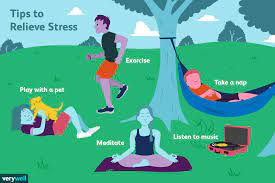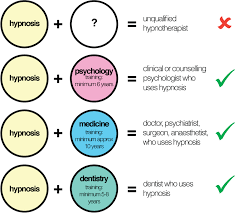The Journey to Trauma Healing
Healing from trauma is a complex and deeply personal journey that requires patience, self-compassion, and support. Trauma can manifest in many forms, from childhood experiences to adult traumas such as accidents, violence, or natural disasters. The impact of trauma can be profound, affecting our mental, emotional, and physical well-being.
One of the first steps in trauma healing is acknowledging the pain and its effects on our lives. It’s important to validate our emotions and experiences without judgment. Seeking professional help from therapists or counselors trained in trauma therapy can provide valuable guidance and support throughout the healing process.
Therapeutic approaches such as cognitive-behavioral therapy (CBT), eye movement desensitization and reprocessing (EMDR), and somatic experiencing can help individuals process traumatic memories, regulate their emotions, and develop coping strategies for managing triggers and stressors.
Self-care practices play a crucial role in trauma healing. Engaging in activities that promote relaxation, mindfulness, and self-expression can help reduce anxiety and improve overall well-being. Regular exercise, healthy eating habits, adequate sleep, and connecting with supportive relationships are essential components of self-care.
Healing from trauma is not a linear process; it involves ups and downs, setbacks and breakthroughs. It’s important to be patient with yourself and celebrate small victories along the way. Building resilience through self-compassion, self-awareness, and self-empowerment can foster inner strength and facilitate long-term healing.
Connecting with others who have experienced similar traumas can provide a sense of belonging and understanding that is invaluable in the healing journey. Support groups, online forums, or community organizations dedicated to trauma survivors offer spaces for sharing stories, exchanging resources, and fostering solidarity.
Ultimately, trauma healing is about reclaiming your power, restoring your sense of safety and trust in yourself and others. By honoring your experiences with compassion and courage, you can transform pain into growth, resilience into strength.
5 Essential Tips for Healing from Trauma
- Seek professional help from a therapist or counselor specializing in trauma healing.
- Practice mindfulness and grounding techniques to stay present and manage overwhelming emotions.
- Engage in self-care activities such as exercise, meditation, or spending time in nature.
- Build a support system of trusted friends, family members, or support groups to share your experiences with.
- Consider alternative therapies like art therapy, yoga, or EMDR to complement traditional talk therapy.
Seek professional help from a therapist or counselor specializing in trauma healing.
Seeking professional help from a therapist or counselor specializing in trauma healing is a crucial step towards reclaiming your mental and emotional well-being. These trained professionals possess the expertise and tools to guide you through the complexities of trauma, providing a safe space for you to explore your experiences, process your emotions, and develop effective coping strategies. Their support can empower you to navigate the healing journey with greater resilience, self-awareness, and hope for a brighter future.
Practice mindfulness and grounding techniques to stay present and manage overwhelming emotions.
To facilitate trauma healing, it is beneficial to incorporate mindfulness and grounding techniques into your daily routine. By practicing mindfulness, you can cultivate awareness of the present moment, allowing you to observe and acknowledge your emotions without judgment. Grounding techniques help anchor you in the here and now, providing a sense of stability and safety when faced with overwhelming emotions or triggers from past trauma. These practices can empower you to stay present, regulate your emotions, and navigate challenging situations with greater resilience and clarity on your path toward healing.
Engage in self-care activities such as exercise, meditation, or spending time in nature.
Engaging in self-care activities such as exercise, meditation, or spending time in nature can be powerful tools in the journey of trauma healing. Physical exercise not only benefits the body but also releases endorphins that can improve mood and reduce stress. Meditation provides a space for introspection and relaxation, allowing individuals to cultivate mindfulness and emotional regulation. Spending time in nature offers a sense of calm and connection to the natural world, promoting feelings of peace and rejuvenation. By incorporating these self-care practices into daily routines, individuals can nurture their mental and emotional well-being, fostering resilience and aiding in the healing process from trauma.
Build a support system of trusted friends, family members, or support groups to share your experiences with.
Building a support system of trusted friends, family members, or support groups is a crucial tip in trauma healing. Sharing your experiences with those who care about you and understand your struggles can provide a sense of validation, comfort, and connection. Opening up to others allows you to feel heard, supported, and less alone in your healing journey. By surrounding yourself with individuals who offer empathy, compassion, and encouragement, you create a safe space to process your emotions, gain perspective, and find strength in solidarity. Remember that healing is not a solitary path; it is a collective effort that thrives on the foundation of supportive relationships and shared understanding.
Consider alternative therapies like art therapy, yoga, or EMDR to complement traditional talk therapy.
Consider incorporating alternative therapies such as art therapy, yoga, or Eye Movement Desensitization and Reprocessing (EMDR) alongside traditional talk therapy to enhance your trauma healing journey. Art therapy provides a creative outlet for expressing emotions and processing trauma through visual means. Yoga offers a mind-body approach to healing, promoting relaxation, mindfulness, and physical well-being. EMDR is a specialized therapy that helps reprocess traumatic memories through bilateral stimulation, facilitating the integration of distressing experiences. These alternative therapies can complement traditional talk therapy by offering additional tools and techniques to support holistic healing and recovery from trauma.



